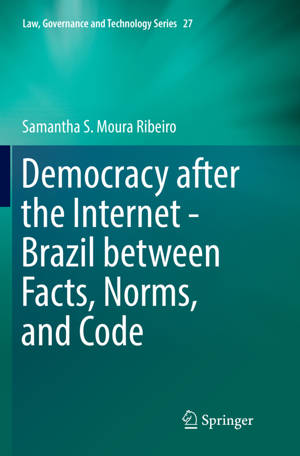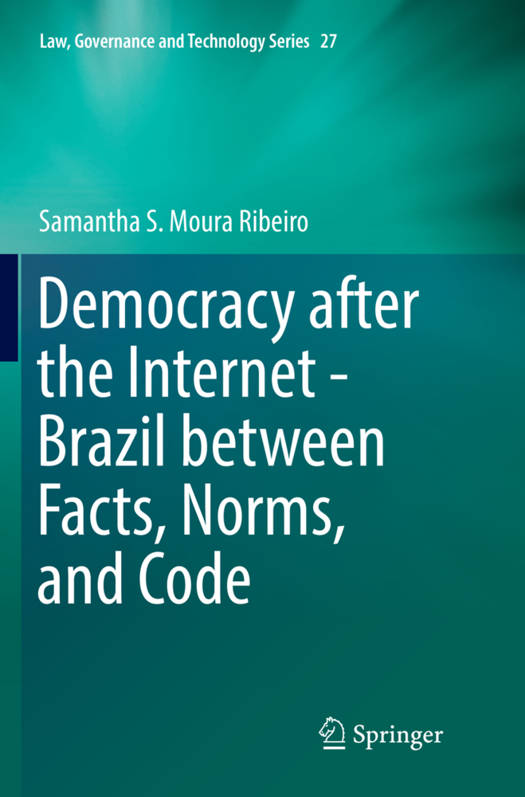
- Afhalen na 1 uur in een winkel met voorraad
- Gratis thuislevering in België vanaf € 30
- Ruim aanbod met 7 miljoen producten
- Afhalen na 1 uur in een winkel met voorraad
- Gratis thuislevering in België vanaf € 30
- Ruim aanbod met 7 miljoen producten
Zoeken
Democracy After the Internet - Brazil Between Facts, Norms, and Code
Samantha S Moura Ribeiro
€ 105,45
+ 210 punten
Uitvoering
Omschrijving
This book throws new light on the way in which the Internet impacts on democracy. Based on Jürgen Habermas' discourse-theoretical reconstruction of democracy, it examines one of the world's largest, most diverse but also most unequal democracies, Brazil, in terms of the broad social and legal effects the internet has had. Focusing on the Brazilian constitutional evolution, the book examines how the Internet might impact on the legitimacy of a democratic order and if, and how, it might yield opportunities for democratic empowerment. The book also assesses the ways in which law, as an institution and a system, reacts to the changes and challenges brought about by the Internet: the ways in which law may retain its strength as an integrative force, avoiding a 'virtual' legitimacy crisis.
Specificaties
Betrokkenen
- Auteur(s):
- Uitgeverij:
Inhoud
- Aantal bladzijden:
- 223
- Taal:
- Engels
- Reeks:
- Reeksnummer:
- nr. 27
Eigenschappen
- Productcode (EAN):
- 9783319815558
- Verschijningsdatum:
- 12/06/2018
- Uitvoering:
- Paperback
- Formaat:
- Trade paperback (VS)
- Afmetingen:
- 156 mm x 234 mm
- Gewicht:
- 340 g

Alleen bij Standaard Boekhandel
+ 210 punten op je klantenkaart van Standaard Boekhandel
Beoordelingen
We publiceren alleen reviews die voldoen aan de voorwaarden voor reviews. Bekijk onze voorwaarden voor reviews.











